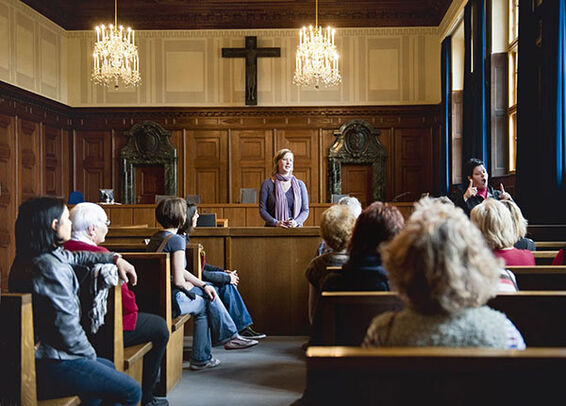
In the course of the Nuremberg Trials, the entire scope of the National Socialist atrocities was revealed to the world. Over 65 million people died in World War II, roughly corresponding to the number of people living in France today. When establishing the tribunal, the allied powers pursued the aims of solving and punishing Nazi crimes and of deterrence. In Germany, at the time, the trials were largely ignored, seen with scepticism or openly rejected. Quite a few spoke of "victors' justice".
The moderated discussion programmes will focus on the Nuremberg Trial of the Main War Criminals. Participants will analyse passages from the indictment and the defence documents, as well as from the judges' reasoning. Discussions will address the importance of the Nuremberg Trials for the immediate post-war years and right up to the present day. There will also be an opportunity to discuss other questions which might have arisen during the exhibition visit.
The programme comprises a guided tour of the exhibition and Court Room 600 (if no trial is in progress) and seminar modules in the Study Centre.
In the 3-hour version, participants will take an additional close look at the (international) legal foundation for the Nuremberg Trials. The 4-hour version is further supplemented with a module on the role of the Nuremberg Trials as a model for today's International Criminal Court in The Hague.
Please fill out this form and send it to
memorium@stadt.nuernberg.de
Booking request (PDF-File 559 KB)
Target group:
Students over 14, adults
Partner:



